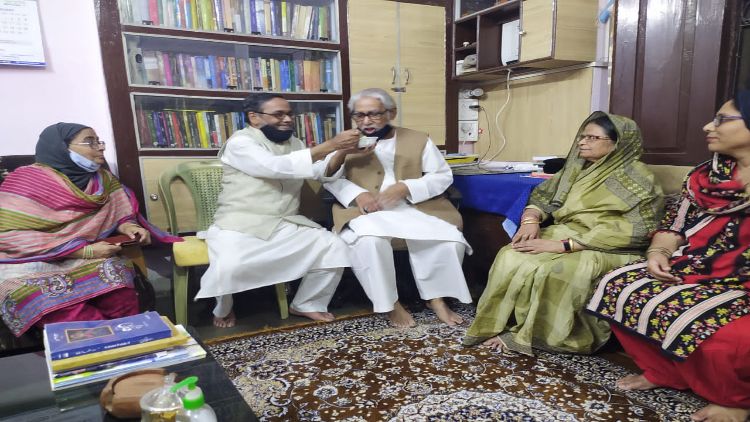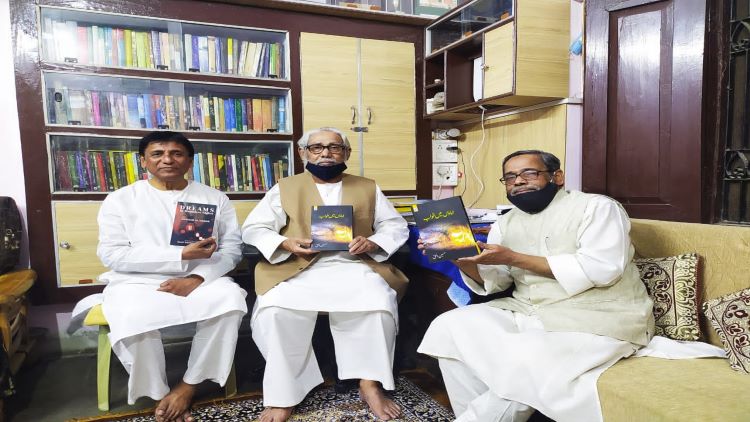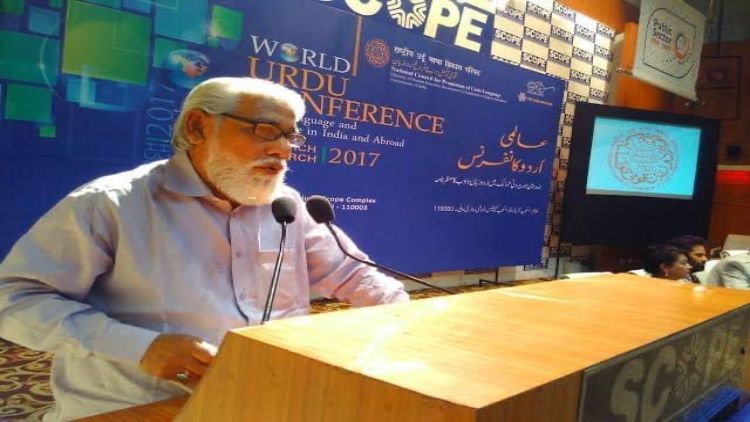Nizamabad Town (Azamgarh District) UTTAR PRADESH / Mumbai, MAHARASHTRA :
“Majrooh Fahmi” explores different layers of the celebrated poet’s luminous legacy
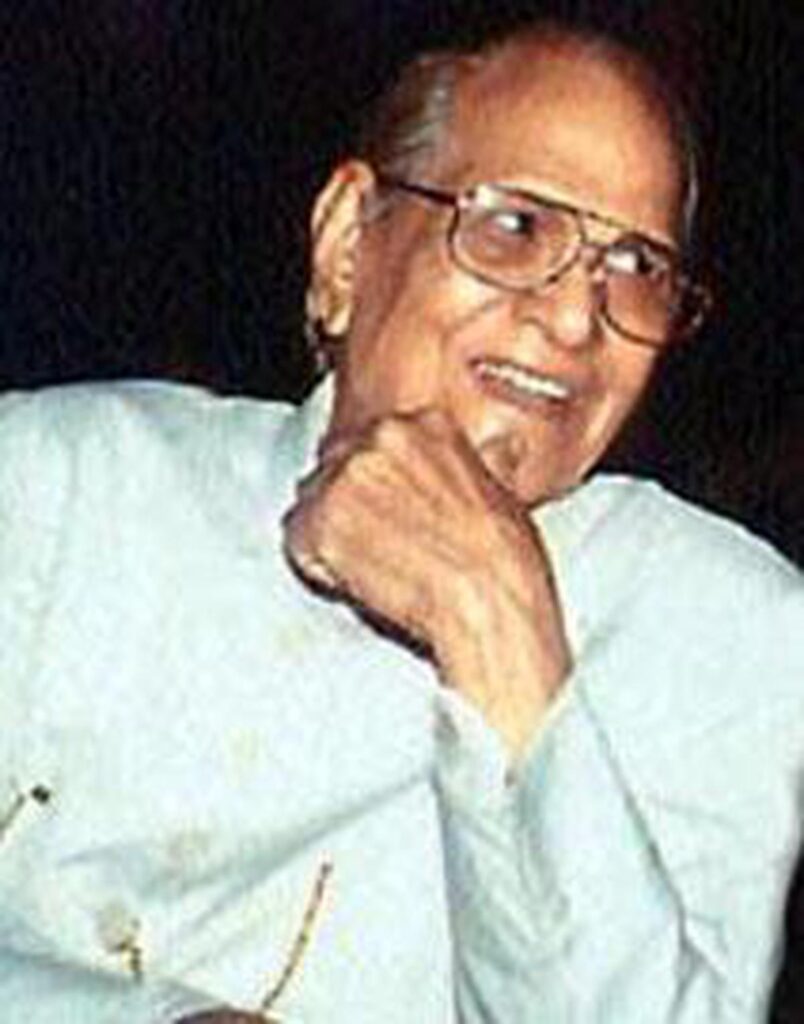
Majrooh Sultanpuri
Can a poet write more than 3000 songs hummed by millions without squandering his aesthetic subtlety and creative dexterity, partially? Does his ghazals, not many in numbers, expand and reinvent matrix of the traditional ghazal and go beyond the insatiable world desire? Can one juxtapose the well-wrought vocabulary of ghazal with the quintessential aesthetic sensibility and modern-day longing in a new idiom? These are the pertinent literary questions that are affirmatively answered by Majrooh Sultanpuri whose birth anniversary is being celebrated across the country, and this is what aptly articulated by a promising literary enthusiast and writer Asif Azmi in his astutely edited book “Majrooh Fahmi” that appeared recently.
Divided into three equally important sections, the book comprising 600 pages seeks to explore different layers of Majrooh’s luminous legacy with a marked sense of critical acuity. It tries to capture the brilliance of a poet who got wide acclaim both in literary circles and the film world. The book, through its discerning articles, zeroes in on Majrooh Sultanpuri’s oeuvre that remains unseen till date.
Not many Urdu poets can vie with Majrooh as far as literary acclaim and popularity are concerned, but it was hardly measured up to the expectation of the poet who remained disenchanted with the critics. It prompted Asif Azmi to initiate a critical dialogue to locate Majrooh in the larger collective consciousness, and the book also seeks to understand why his immensely popular film songs overshadow his awe-inspiring poetry.
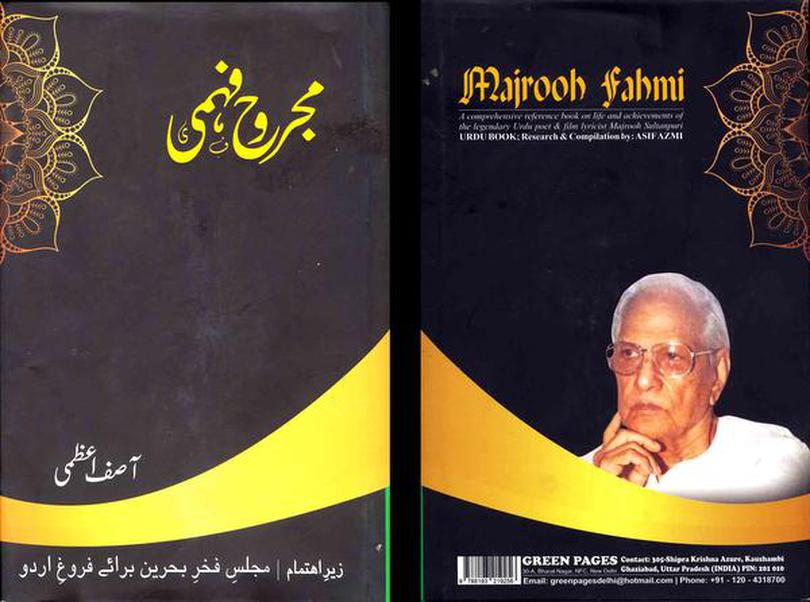
Majrooh’s intent of creating new semantic space by using traditional metaphors and motifs was erroneously credited to Faiz and critics eternalised the critical injustice.
Majrooh has a point, but one must also realise that his poetic journey spanning over six decades produced less than 50 ghazals and such a small work of art cannot subvert the archaic form and cliché-ridden thematic mannerism of ghazal.
Spelling out the contours of his critical gaze, editor Asif Azmi says “One of the greatest exponents of the contemporary ghazal, Majroooh is yet to get his due even at the time of his 100th anniversary. It betrays a deep-rooted prejudice or a wilful ignorance.”
He, again, rightly asserts that Majrooh played a pivotal role in shaping popular Indian literature and popularising Urdu at mass level. Every notable Urdu critic has made a critical appraisal of his work and a plethora of books and special issues have appeared on his art.
Critical evaluation
The voluminous book is certainly more than a commemorative volume as it is not an assortment of flattering articles, but concentrates on a thorough critical appraisal of the poet. The editor turns attention to the best articles that emerge out of the rubble heap of the assessment of the poet, and the discerning evaluation of prominent Urdu critics such as Sardar Jafri, Mohammad Hasan, Waris Kirmani, Zoe Ansari, Waheed Akhtar, Wahab Ashrafi, Syed Hamid and Sidiqur Rehman Qidwai have been selected.
For Waheed Akhtar, Majrooh, for the first time, used the traditional metaphors of ghazal: morning, night, slaughterhouse, prison, autumn and spring as political symbols and it is Majrooh who made them as the distinctive feature of Progressive poetry.
Zoe Ansari opines that his poetry unravels a nuanced sense of civic lyricism which was not explored by any other poet. Several Urdu scholars castigated Majrooh for his bizarre, declamatory diction meant for instigating people to take up arms for the revolution
The book carries two perceptive essays of accomplished Hindi critics such as Jitender Srivastava and Rakesh Pandey. Mapping out semantic similarities between Kabir and Majrooh, Srivastava quotes a couplet of Majrooh and points out that Majrooh engages himself with the tremendous anti-establishment tradition of Kabir. He urges ordinary people to join him after burning their homes, and he does not address the capitalist and the people belonging to the powers-that-be.
Befitting tribute
The first section of the book puts together the reminiscences of Lata Mangeshkar, Mazhar Imam, Jagannath Azad, Kashmiri Lal Zakir, Ziauddin Shakib, Ali Ahmad Fatemi, Naeem Kauser and his seminal contribution as a lyricist has also been well documented by Nadeem Ahmad and Rashid Anwar, and S.S. Bhatnagar Shadab.
Delineating his contribution to films which fetched him the Dadasaheb Phalke Award, Majrooh asserts, “I have no hesitation in saying that I, along with O.P. Nayyar, successfully used innumerable Persian and Urdu words and gave nearly 20 new words to the vocabulary of film songs. I invented a unique style with S D Burman which has been described as romantic comedy. It was widely believed at that time that duet songs would not become famous, but I wrote many duets that became immensely popular.”
The book is a befitting tribute a poet who creatively explored various genres including qawwali, bhajan, cabaret, folksongs and ghazal with remarkable ease and Asif deserves accolades to acquaint us with a world of the poet which is not shaped by hatred, suspicion and delirium.
source: http://www.thehindu.com / The Hindu / Home> Books> Authors / by Shafey Kidwai / May 16th, 2019
